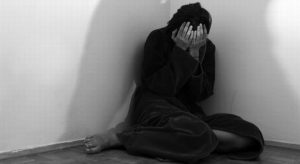Joanna Williams in Spiked:
 Being a feminist must be hard work. Perhaps you’ve got a newspaper column to fill with your hot take on the latest sexist outrage. Or perhaps you have a university sexual-harassment policy to write. Or a government minister to consult about a proposed new law. Or a hefty budget to administer. You’ve got the salary, a platform for your views, and the capacity to influence what happens in almost every institution in the country. And yet the entire basis for you being in this fortunate position, for walking the corridors of power, is your powerlessness. The bind for today’s professional feminist is the more power and influence she gains, the harder she needs to work to show that women are still oppressed.
Being a feminist must be hard work. Perhaps you’ve got a newspaper column to fill with your hot take on the latest sexist outrage. Or perhaps you have a university sexual-harassment policy to write. Or a government minister to consult about a proposed new law. Or a hefty budget to administer. You’ve got the salary, a platform for your views, and the capacity to influence what happens in almost every institution in the country. And yet the entire basis for you being in this fortunate position, for walking the corridors of power, is your powerlessness. The bind for today’s professional feminist is the more power and influence she gains, the harder she needs to work to show that women are still oppressed.
Some career feminists get around this conundrum by claiming they are not representing their own interests but selflessly fighting for other women. Apparently, countless hordes of downtrodden women, unable to speak up for themselves, are just waiting for feminists to give voice to their concerns. But as only a small minority of women identify as feminists (estimates vary between a third and seven per cent), the response to all this speaking on behalf of others seems to be a resounding ‘no thanks’. The last resort of the professional, well-paid, powerful feminist, desperate to prove her credentials as a member of an oppressed group, is to allude to violence. The experience of violence – whether actual, imagined or potential – appears to unite all women, allowing the most privileged to claim common cause with women who are struggling just to get by. Helen Pankhurst, great-granddaughter of Suffragette Emmeline, expresses this succinctly: ‘Violence against women is the one factor that infects every aspect of women’s lives.’
More here.
